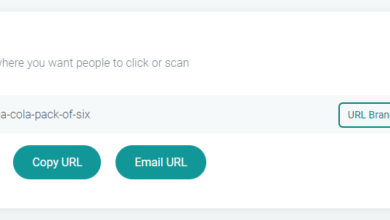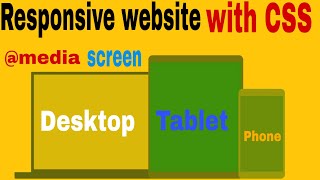How To Create an App: The Ultimate Guide for 2023

If your business wants to know how to build an app, you’re probably wondering what technical skills, technologies, and platforms matter most. While technical skills and good technology choices play a crucial role in developing top-notch mobile apps, there are several other key tasks and considerations that play an essential role in creating a successful app.
Mobile app development requires more than just technical skills. In addition to the technical skills and broad knowledge that an app development company can provide, to create an app that meets user expectations, provides a valuable service and outperforms your competitors, you need a well-defined strategy and app development approach .
Reading: How to create an app application
If your business wants to know how to create an app, this post will help you. However, this post does not provide you with the technical skills required to create an app. Learning the ins and outs of app development requires hands-on experience and specialized training that can take years to master.
Even though we won’t teach you the technical side of application development, we’ll explain how your company can turn an initial app idea into a mobile app that users will love and achieve your business goals. Let’s explore some of the key tasks and considerations your business must make when building an app.
How to build an app: key tasks and considerations
Building a successful app starts long before a single line of code is written. In fact, without a solid foundation in the direction of your company’s app development project, it doesn’t matter how good your code is; It will be difficult to fully realize your app idea.
Make sure your business fully considers the following to create your own app that will be successful:
- Define your app idea
- Understand your target audience
- Define key functions and popular app features
- Research Your competitors
- Choose an app development approach
- Invest in security and maintenance
- Don’t forget about ASO
Define your app idea
Great mobile apps take time to build. As a result, your original app idea will likely undergo iterations and changes before a final product is developed. Therefore, the first step your business needs to take is to clearly define an app idea.
These questions can help you define your mobile app:
- Why would you want to create your own mobile app?
- What purpose do you want it to serve?
- How does that purpose fit with the broader business goals?
Every mobile app serves a purpose. However, there are various reasons why your company might want to create an app. Therefore, we will not examine every possible motivation for developing a mobile app. However, to be successful, your mobile app should fulfill two things: the needs of your consumers and the goals of your business.
App development costs are not cheap. However, your business can control spending by clearly defining the purpose of the app and the goals of the business. Without a clearly defined app idea, your company will not optimize the use of its resources and will spend more money as a result.
Understand your target audience
Besides clearly defining the purpose of your app, understanding and defining your company’s app marketing plan is crucial to the success of its application. Are you developing a mobile app for internal or external users? What benefits does your app bring to its users? If you struggle to define how your mobile app benefits users, users will struggle to see how it benefits them. Mobile apps that offer no value or benefit to users are quickly abandoned.
To ensure your mobile app delivers value to users, you need to understand your audience. The ideal target group for companies is usually their existing or potential customers. By conducting audience research and analysis, you can get an accurate picture of what your audience wants, needs, and common problems they’re trying to solve.
Failing to identify your audience accurately can lead to negative consequences for your business creating an app that users do not use. Don’t waste valuable app building resources without doing audience research.
Define key capabilities and features
Once you have a clear understanding of the purpose and audience of your app, the next step is to define the key capabilities and features that need to be included . Make a list of all the essential functions and features to make your app idea work as expected. Some companies use their list of key functions and features to create an MVP (minimum viable product).
A minimum viable product is essentially a stripped down version of the software that contains only the essential features and functionality.Many companies, especially startups, choose to develop MVPs to validate their app idea and ensure the features and functionality they consider critical are in place. An MVP also helps with audience and market research.
First, your business should only focus on features and functionality that add value to the app. Then, as the application matures, your organization can add features and functionality based on user feedback.
Prioritizing essential features first is the best approach to app building. On the one hand, your company saves financial resources by only developing critical features. Additionally, focusing on essential elements ensures that your mobile app offers a rich user experience.
Understand your competitors

Competitor research is an essential and valuable part of the mobile development process. Competitive analysis can provide important insights that will significantly benefit your mobile application development project. Analyzing your competitor’s mobile app offerings will help your business:
- Define your target audience.
- Validate key features and functionality of the app.
- Understanding the market demand for his app idea.
- Monetize aspects of their mobile app.
- Avoid common mistakes made by other companies.
Competitor analysis helps your company identify service gaps and close them. If you want your mobile app to be successful, your app must provide value to users. The easiest way to add value to users is to give them something they don’t currently have. If you don’t take the time to understand your competitors, you won’t be able to accurately assess the current market or predict demand for your app idea.
Choose an App Development Approach
You shouldn’t start considering your company’s approach to mobile application development until you thoroughly understand the current market, your target audience, and have researched the competition. There are two general approaches to mobile app development: native and cross-platform.
Based on your user research and competitive analysis, it might be clear that cross-platform development is your best option. On the other hand, your research might indicate that the majority of your audience works on iPhone, which would mean that native iOS development is the best option for your business.
Native mobile app development is app development that targets a specific platform. Native apps can take full advantage of the hardware and functionality of a given device. For example, a native Android app can take full advantage of an Android device’s GPS, camera, and other platform-specific features. This is why native apps outperform all other types of mobile apps. Native apps offer the best possible user interface and the highest levels of performance.
See also: How to Create a Group in Gmail
Native app development can be expensive, however, as you need to develop a separate app for iOS and Android. Does your company have the time or financial resources to build two applications? Unfortunately, many companies don’t have the luxury of developing two native apps. This fact makes customer research a crucial factor before deciding on a development approach.
For example, if you find that the majority of your target audience is using an iPhone, you don’t want to waste time developing a native Android app. Additionally, you probably don’t want to create a cross-platform app either, as it can’t offer the same features and levels of performance as a native iOS app.
Suppose your target audience uses both platforms equally and your company does not have the financial resources to develop two native apps. In this case, cross-platform app development is a good choice for your business. Cross-platform apps are designed to run on all major mobile platforms, iOS, Android and Windows.
There are a few ways your company can approach cross-platform development. For example, you could create a traditional cross-platform app using popular mobile app development frameworks like Flutter and React Native, or you could create a hybrid app or a Progressive Web App (PWA). Technically, hybrid apps and PWAs are different from cross-platform apps, but are often discussed together because they can be used on all mobile platforms. Here’s what you need to know about each of these options.
Cross-platform app

Cross-platform apps are built using programming languages such as JavaScript as the core code base. However, cross-platform apps use development frameworks to integrate native user interface elements.
Think of cross-platform apps like a sundae.The core code base layer is the same vanilla ice cream for iOS and Android, but each platform has unique native UI toppings built by frameworks. As a result, cross-platform apps have a native level of performance, but most of the code only needs to be written once.
Hybrid Apps
Hybrid apps are built using a mix of web and mobile app development techniques. A hybrid app is a mixed web and mobile app. These apps are built using the core web technologies of HTML, CSS and JavaScript and combine this code base with a development framework.
Hybrid apps are often confused with cross-platform apps, but hybrid apps do not create separate native user interface elements. Instead, a hybrid app is the same code for each platform. Companies choose this app development approach when they want to reach the widest possible audience in the shortest possible time, as hybrid apps can be built faster than cross-platform apps.
Progressive Web App (PWA)
Progressive Web Apps look like apps, but are accessed through a mobile browser rather than an app store. Therefore, you can think of these apps as mobile web apps. Progressive Web Apps are built using JavaScript, HTML and CSS. Users can download these apps directly from their browsers.
Thanks to advances in HTML, PWAs can provide users with more native functionality. For example, users can download PWAs to their home screen, use them offline, and receive push notifications.
Invest in security and maintenance
The app development process never really ends. Unfortunately, many companies assume that once their app has been developed, the project is complete. However, as long as your mobile app is live, there is always work to be done. The main concerns are security and app maintenance.
Bugs and other minor errors do occur from time to time. Your business needs to invest in maintenance to ensure that any issues are addressed promptly to minimize their impact on user experience and security. Digital security should be an active part of your company’s mobile app strategy.
Cyber threats are constantly evolving. If you collect and use sensitive user data, you must take every precaution to protect your users’ and organization’s data from cyberattacks. Losing or compromising user information damages your brand image and can also harm your business financially. Therefore, prioritize digital security from day one of your mobile app development project.
Don’t forget ASO
ASO or App Store optimization is essential for </strong App -Development Success. The Apple App Store and Google Play Store host millions of apps. So how do you stand out in a crowded field? By implementing a solid ASO strategy. ASO is like Search Engine Optimization (SEO) but for app stores.
Make sure your business is doing keyword research, choosing the right screenshots, and optimizing your app store listing. The better your app performs in organic searches in the app stores, the more downloads your app will generate. Having a well-designed mobile app is of no use to your business if no one knows about it.
App development FAQ
Even after you gain a better understanding of the app creation process, you probably still have questions. These questions are important. If you choose to partner with an app development agency, they should be able to provide you with clear answers and detailed explanations to your questions.
We will answer some of the most common questions below. In many cases, however, the specific answers depend on the uniqueness of the app your company wants to create.
How much does app development cost?
This is the most frequently asked question for obvious reasons. Every company wants to have a clear understanding of the costs involved before deciding to invest in development. However, app development costs vary. App development isn’t like a gallon of milk, which is usually sold everywhere for the same price. Not only does the specific details of your app development project affect the cost, some developers may charge you more labor and time than others.
The truth is that app development is not a cheap service. Application development is a process that requires great attention to detail and a lot of planning, as we’ve already covered in this post. In addition, well-designed mobile and web apps add great value to a business. Also, app developers are highly skilled technical professionals. As a result, these services can represent a significant financial investment.
Although it would be impossible to tell you how much app development costs without knowing the intimate details of your app idea, we can explain which factors influence costs the most.
Development costs are most influenced by:
- The complexity of your idea – Simple apps with little to no communication features or data consumption are cheapest to build. On the other hand, apps that handle financial transactions, allow users to do banking or even just buy items represent the most complex and therefore expensive apps to build.
- Development choices – Native apps are more expensive in the Build as cross-platform or hybrid apps. If you also create a native app for each platform, you essentially double your costs.
- Continuous Improvement Plans – Most apps are not built and left as is. There will likely be plans to add new features and functionality as the app ages to delight users and keep them using your app. Continuous improvements add to the overall cost of development.
- Security and maintenance – Far too many companies don’t factor these costs into app development budgeting. No matter how complex or simple your app is, you need ongoing maintenance and security services to ensure the health and digital security of your product. If you are speaking to a development company about development costs, make sure that these costs are also taken into account.
Understanding these factors should help your organization set realistic expectations for development costs. If you’re unsure about an offer you’ve received, reach out to other developers to see how they rate your project. However, the cheapest option may not be the best. Remember that your company’s app will be a significant digital asset that will be leveraged for years to come.
How long does the app development take?

Once again, the answer to this question largely depends on the complexity of the app you want to develop and the team developing it. However, on average it takes you between three and nine months to create an app. We don’t include security and maintenance as these are ongoing parts of app development. If your app is successful, the security, maintenance, and support aspects of the app development lifecycle persist for the lifetime of your app.
See also: How to Create and Access Kindle Account? [Complete Guide!]
More complex apps take longer to develop. However, with a clearly defined and communicated vision and expectations, you can avoid costly delays. The one thing that slows down most projects is poor communication between the company and the development team. You can ensure efficient development of your project by clearly communicating your app idea and its essential features to the development team. App developers can’t read minds. Vague guidelines and goals are likely to result in a product you are not happy with.
While you need to make sure you communicate your app ideas and goals to the development team, you need to make sure the developers you hire are also good communicators. Communication is not a one-way street. The development should ask questions and clarify your company’s vision for its application. A lack of questions or communication does not necessarily mean that you have been understood. When hiring a development team, communication skills should be an important consideration.
Can I build an application internally?
Yes, you could build an application with in-house IT staff. However, standards and best practices for app development are constantly evolving. To build a great application, you need people who are familiar with native development trends and technologies, frameworks and specific operating systems. These are high-level skills, and while you might have some people on your IT team who have some of these skills, app development isn’t a one-man show.
A whole team is developing the app. This is how great apps can be built and deployed in three to nine months. Without a full development team, it takes longer and may even cost your company more money to develop an app. Most companies turn to external development teams for app development projects because it doesn’t make financial sense to hire all the required talent internally for a project that eventually ends.
New low-code/no-code app development tools are also available. These low-code tools empower people with little to no technical skills or experience to create an application using intuitive drag-and-drop visual editors. Could you build a working app this way? yes you could However, apps built with low-code platforms are not designed for enterprise use.These apps don’t scale easily and don’t have the same capabilities as apps built by a professional development team.
At this point, it’s fun to play with low-code/no-code tools, but you won’t be able to create an app that brings real value to your business. The best option for most companies is hiring an external development team. External developers have more specific skills and valuable experience in building a wide range of different apps.
How long does it take to publish my app to the app stores?
When your app development project is complete, your company looks forward to sharing it with the public. However, if you’ve never released an app before, you’re probably wondering how long it will take for app stores to approve it and make it available for download.
It will take approximately two weeks for your app to be accepted and published in an app store. Google and Apple have different procedures for reviewing app submissions, but both stores require that you provide the following information and assets for review in addition to your app:
- Basic company and contact information
- Screenshots of the app
- A detailed description of your app and how it works
- Icons for store display and home screen
- Videos or demonstrations of Your app in use
The Apple App Store has a stricter review and acceptance process than the Google Play Store. Apple closely monitors its Store and ensures that all apps meet established quality control standards. Because of this, Apple manually reviews every submission to the App Store. Google uses an algorithm to ensure app submissions do not violate its policies.
Don’t be surprised if Apple takes longer to review and accept your application than Google. However, if you wait longer than two weeks, you should contact the store to ensure your claim has been properly submitted.
If your business doesn’t want to wait for app store approval, you can choose to develop a Progressive Web App (PWA). As previously mentioned, PWAs are accessed directly from a user’s browser. Therefore, you don’t need to publish your application to a store, and you don’t need approval from Apple or Google.
Although PWAs will not all have the same functionality as native or cross-platform apps, improvements to HTML will still allow users to save their PWA for offline use and receive push notifications, among other things.
How often should I update my application?
Your application is a valuable asset that needs regular maintenance and updates. Unfortunately, like many other questions we’ve answered so far, there’s no standard answer to how often your app should be updated. If you find many errors, you should update your application to fix these problems. Error corrections usually do not take long.
Against this background, the top performing high-traffic applications are updated up to four times a month. Most of these updates do not contain any new features or functionality. Rather, they aim to improve the user experience through bug fixes and user interface improvements.
More complex updates, such as introducing new features, take longer to deploy and often require bug fixes once users have a chance to use the new features. Many companies bundle bug fixes and new features into a single update. Keep in mind that most users will need to manually update their version of your app. It’s important to encourage users to keep their app up to date to ensure your app works as expected.
If you’re working with an app development company, be sure to discuss post-deployment plans for your app with them. Hopefully, your development team will help your company create a post-launch maintenance and upgrade plan for your app.
Crafting a strategic upgrade plan is essential to long-term success. But first, your business needs to make sure you collect and verify user feedback. Then prioritize editing the comments presented in user feedback before introducing new features that have not been tested.
Can my application be monetized?

Any application can be monetized, but choosing the right strategy is critical to the user experience and overall success of your business. Choosing the wrong monetization model can degrade user experience and drive users away from your application. For example, choosing a freemium monetization model for a service app is likely to frustrate and put users off.The mobile app monetization models are as follows:
- Advertising
- Pay-per-download
- In-app purchases
- Subscription
- Freemium
Your business needs to think carefully about how to monetize your app. One of the best ways to determine which monetization model best suits your app is to analyze your competition. How are your competitors monetizing their apps? This is the best way for your business to monetize its app.
For example, if you want to build a media streaming service, the subscription model is probably the best option for your app. Users are already familiar with this model in this context and will not get upset about paying for content. Just because your industry tends to monetize apps in a way doesn’t mean there isn’t potential to choose a better monetization model and innovate.
For example, most mobile games are paid per download, but recently some companies are offering subscription-based services that allow users to play multiple games for one monthly price.
Another thing to consider is the fees that the app stores collect from the revenue you generate. Apple and Google get 30% of the revenue you generate in their respective app stores. If you have a subscription-based revenue model, these companies will take 15% of your revenue, but only after the first year. So you can expect to pay 15-30% of your sales to Apple or Google. Many businesses that don’t want to pay these fees can bypass the deals by creating a PWA.
Final Thoughts
As you can see, there is a lot of information to consider when building a mobile app, and we haven’t even started exploring the technicalities of mobile app development yet. While it may seem overwhelming, you can help your business navigate the complexities of mobile app development by partnering with an experienced app development company. An experienced mobile app development partner will show you how to create an app that fits the needs of your business.
See also: How to create a GMod server
.




